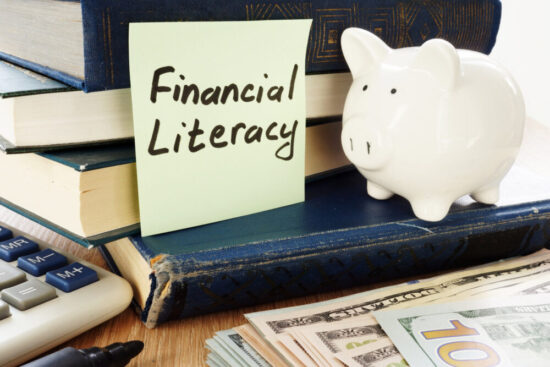
Financially literacy is critical for securing one’s future. It ensures you know the ins and outs of managing your financial life, including how to budget, the benefits of compound interest, the long-term impacts of debt, and more. The problem is that many adults struggle when it comes to financial literacy, partially because it isn’t classically taught in school. However, some states are looking to change that, requiring students to learn about personal finance before they graduate from high school.
The Benefits of Requiring Personal Finance Courses in School
Learning about personal finance in school ensures soon-to-be young adults have some solid information before they have to start managing their own money. It allows them to learn about critical fundamentals, such as budgeting, how credit cards work, the impact of student loans, and more, all before they’re dealing with many of those issues personally.
Essentially, it promotes financial literacy. By requiring the courses, students will have an easier time creating a financial future for themselves that doesn’t involve as much hardship. That could make them more financially secure as they move through adulthood and more adept at adapting to challenges – such as sudden job losses – than those without the knowledge.
7 States That Require Students to Learn About Personal Finance
Currently, there are only seven states that make personal finance classes mandatory for high school students. Generally, high school students must complete at least one semester of qualifying coursework. Otherwise, they aren’t eligible for graduation.
Here are the seven states that require students to learn about personal finance:
- Alabama
- Mississippi
- Missouri
- North Carolina
- Tennessee
- Utah
- Virginia
7 States That Will Soon Require Students to Learn About Personal Finance
Along with the seven states above, five more are actively on the path to making personal finance courses a requirement for high school students. Laws have been signed making the class a must-take already, but the states are in various places when it comes to implementation.
Often, implementation takes more time than some would expect, mainly because a formal curriculum must be developed. That may require a few years to design and approve, depending on the path the state takes.
Here are seven states that will require students to learn about personal finance in the near future:
- Florida
- Georgia
- Iowa
- Nebraska
- Ohio
- Rhode Island
- Washington
Other states do have bills in the works that could make personal finance courses mandatory in the future. However, until they officially become law, there’s also a chance the legislation will fail.
Still, the pandemic made it clear that financial literacy is increasingly essential, creating a level of fervor around the idea that wasn’t as present in years past. As a result, more states will likely join the lists above in fairly short order, ensuring teens will have the information they need to make wiser financial decisions as adults.
Do you know of any other states that require students to learn about personal finance? Do you think personal finance should be a standard part of the curriculum for all students? Share your thoughts in the comments below.
Read More:
- Budgeting Tips for College Students
- 10 Tips for Students That Work
- The Importance of Financial Aid for Students
Come back to what you love! Dollardig.com is the most reliable cash back site on the web. Just sign up, click, shop and get full cash back!
Tamila McDonald is a U.S. Army veteran with 20 years of service, including five years as a military financial advisor. After retiring from the Army, she spent eight years as an AFCPE-certified personal financial advisor for wounded warriors and their families. Now she writes about personal finance and benefits programs for numerous financial websites.
Comments